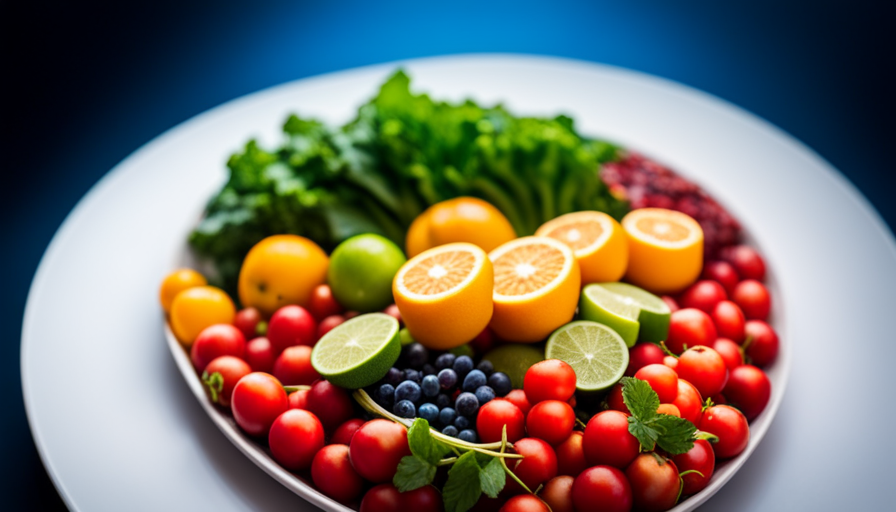Ever pondered how humans rose to the top of the food chain on Earth? What distinguishes us from the other creatures in the animal kingdom? The key might just be found in the act of cooking. That’s right, cooking! Humans didn’t ascend to their current position by solely consuming raw food.
Our ancestors discovered fire and harnessed its power to transform the way we eat. This seemingly mundane act of cooking had a profound impact on our evolution. In this article, we will explore the fascinating journey of how cooking shaped our species. From the nutritional benefits it provided to the evolution of our brains, cooking played a crucial role in our development.
We will also delve into how cooking brought us together as a community and became a cultural practice. Join us as we unravel the story of how cooking not only expanded our diet but also transformed agriculture and food production.
Finally, we will glimpse into the future, exploring the innovations and trends that lie ahead in the world of cooking. Get ready to discover the incredible power of cooking!
Key Takeaways
- Cooking played a crucial role in human evolution and our dominance as a species.
- The consumption of cooked food provided early humans with more energy, leading to the development of larger brains.
- Cooking enhances nutrient absorption, improves overall health and immune function.
- Cooking has shaped the development of the human brain and contributed to our cognitive abilities.
The Discovery of Fire and Its Impact on Early Humans
The discovery of fire was a game-changer for early humans, igniting a flame of progress that forever transformed our existence. Early humans quickly realized the benefits of cooking food and relied on it for survival. Cooking food made it easier to digest and increased its nutritional value. This allowed early humans to access a wider range of nutrients and energy, leading to improved health and brain development.
The cultural significance of fire and cooking in early human societies can’t be overstated. Fire provided warmth, protection, and light, allowing early humans to extend their activities into the night. It also became a central gathering place, fostering social interaction and the sharing of knowledge. The ability to cook food together created a sense of community and cooperation, reinforcing social bonds among early human groups.
Furthermore, cooking food had a profound impact on our evolution. The consumption of cooked food provided early humans with more energy, allowing them to develop larger brains. This increase in brain size and capacity played a crucial role in our cognitive development and ability to adapt to changing environments.
The discovery of fire and the subsequent reliance on cooked food revolutionized early human societies. Fire not only provided practical benefits but also had a significant cultural and evolutionary impact. It paved the way for the progress and advancements that have shaped the course of human history.
The Nutritional Benefits of Cooking
Start experiencing the nutritional benefits of cooking by incorporating it into your diet. Cooking has played a significant role in the evolution of humans and has provided numerous health benefits. Here are four reasons why cooking your food can be beneficial for your overall well-being:
-
Enhanced Nutrient Absorption: Cooking breaks down the cell walls of plants and animals, making it easier for your body to absorb essential nutrients like vitamins and minerals. This can contribute to better overall health and improved immune function.
-
Increased Antioxidant Availability: Cooking certain foods can increase the availability of antioxidants, which help protect your body against harmful free radicals. For example, cooking tomatoes increases the bioavailability of lycopene, a powerful antioxidant that may reduce the risk of certain diseases.
-
Improved Digestibility: Cooking can make certain foods easier to digest by breaking down complex carbohydrates and proteins. This can alleviate digestive issues and enhance nutrient absorption.
-
Culinary Creativity: Cooking allows you to experiment with different flavors, textures, and cooking methods. By exploring new recipes and techniques, you can broaden your culinary horizons and create delicious, nutritious meals that satisfy both your taste buds and your nutritional needs.
Incorporating cooking into your routine can provide you with a multitude of health benefits and allow you to unleash your culinary creativity. So, start exploring the world of cooking and enjoy the nutritious rewards it brings.
Cooking and the Evolution of the Human Brain
Cooking has played a pivotal role in the development of the human brain, shaping our cognitive abilities and contributing to our evolutionary success. The act of cooking our food has allowed us to access a greater variety of nutrients and energy sources, leading to the growth and development of our brain.
Cooking breaks down complex molecules, making them easier to digest and absorb. This process not only increases the efficiency of nutrient absorption but also allows for the release of more energy-rich compounds, fueling the growth and functioning of our brain.
Furthermore, cooking has had a profound impact on the development of language in humans. The ability to cook and share meals has fostered social interactions and cooperation among early human communities. This increased socialization provided an environment for the development and refinement of language, allowing for the exchange of information, ideas, and cultural practices.
Cooking brought people together, creating opportunities for communication and the transmission of knowledge from one generation to the next.
Cooking has been a key factor in the development of the human brain and the evolution of our species. Through cooking, we have gained access to a wider range of nutrients, fueling the growth and functioning of our cognitive abilities. Additionally, cooking has facilitated social interactions and the development of language, shaping our cultural and intellectual advancements.
The act of cooking has been instrumental in our journey as a species, contributing to our evolutionary success.
The Role of Cooking in Socialization and Community Building
Imagine a world where people gathered around a fire, sharing deliciously cooked meals, and forming tight-knit communities that thrived on social interaction and cooperation. Cooking plays a crucial role in building relationships and fostering socialization within communities. It serves as a form of expression, allowing individuals to showcase their creativity and cultural heritage through the preparation and presentation of food.
Cooking brings people together in various ways. First, it creates a sense of belonging and unity. When individuals gather to cook and share meals, they engage in a collaborative activity that fosters a sense of community and togetherness. It provides an opportunity for individuals to connect, bond, and strengthen existing relationships.
Furthermore, cooking facilitates communication and interaction among community members. As people prepare meals together, they engage in conversations, exchange stories, and share experiences. This not only strengthens social ties but also promotes understanding, empathy, and cultural exchange.
Cooking allows individuals to express their creativity and identity. Through food, people can showcase their unique cultural practices, traditions, and personal tastes. This promotes diversity and appreciation for different cultures within a community.
In conclusion, cooking is more than just a means to nourish our bodies. It serves as a powerful tool for building relationships, fostering socialization, and expressing one’s identity. By sharing delicious meals around a fire, communities can come together, form tight-knit bonds, and thrive on social interaction and cooperation.
Cooking as a Cultural Practice
As you gather around the fire, the tantalizing aromas wafting through the air, you immerse yourself in the rich tapestry of cultural practices that cooking brings to life. Cooking has played a significant role in shaping human culture and has been a vital part of our historical evolution.
The cultural significance of cooking goes beyond mere sustenance; it’s a way for communities to come together, share stories, and pass down traditions from generation to generation.
Throughout history, cooking has been a means of survival and has allowed humans to thrive in various environments. The ability to cook food has given us an evolutionary advantage by making it easier to digest and extract nutrients from a wider range of ingredients. This innovation allowed for the diversification of our diets and the exploration of new culinary possibilities.
Cooking also acts as a powerful cultural marker, defining the identity of different communities. Each culture has its unique cooking practices, ingredients, and flavors. Traditional recipes and cooking techniques are passed down through generations, preserving cultural heritage and fostering a sense of belonging.
Furthermore, cooking has been a catalyst for socialization and community building. The act of preparing and sharing meals brings people together, promoting communication, bonding, and a sense of unity. From ancient civilizations gathering around communal fires to modern-day family dinners, cooking has always been a way for humans to connect and strengthen social ties.
Cooking as a cultural practice has played a crucial role in shaping human history and society. Its cultural significance and historical evolution have allowed for the development of diverse culinary traditions and have fostered a sense of community and belonging. So, as you savor the delicious flavors of a home-cooked meal, remember that you’re participating in a practice that has shaped human culture for millennia.
The Development of Culinary Techniques and Recipes
When you delve into the history of culinary techniques and recipes, do you ever wonder how ancient civilizations discovered the perfect combination of ingredients and cooking methods to create delicious meals? The development of culinary techniques and recipes can be seen as a series of culinary inventions throughout history.
As humans began to explore different methods of cooking, they discovered new ways to enhance the flavors and textures of their food. One of the earliest historical cooking techniques was the use of fire. The ability to control and manipulate fire allowed early humans to cook their food, making it more digestible and safer to eat. This discovery not only provided a source of heat for cooking but also opened up a whole new world of culinary possibilities.
Over time, humans began to experiment with different cooking techniques, such as boiling, roasting, and baking. These techniques allowed for the development of a wide variety of dishes and flavors. Additionally, the invention of tools, such as pots and ovens, further expanded the range of culinary possibilities.
As civilizations developed and interacted with each other, culinary techniques and recipes were shared and adapted. The exchange of ingredients and cooking methods led to the creation of new and unique dishes. The development of trade routes and the exploration of new lands also played a significant role in the evolution of culinary techniques and recipes.
The development of culinary techniques and recipes is a result of human curiosity and experimentation. Through the ages, humans have continuously discovered and refined new methods of cooking, leading to the creation of diverse and delicious meals. The historical cooking techniques and culinary inventions have shaped the way we eat and enjoy food today.
Cooking and the Expansion of Human Diet
Get ready to explore a world of culinary adventure as you discover how cooking revolutionized human diets and opened up a whole new realm of delicious possibilities. The evolution of cooking techniques played a crucial role in the expansion of human diet.
Early humans discovered that by using heat, they could transform raw ingredients into more palatable and digestible forms. This allowed them to consume a wider variety of foods, including tough meats and fibrous vegetables that would have been otherwise difficult to chew and digest.
But cooking did more than just make food easier to eat. It also had a profound impact on human health. Through the cooking process, harmful bacteria and parasites were eliminated, reducing the risk of foodborne illnesses. Additionally, cooking helped to break down certain compounds in food, making essential nutrients more accessible to our bodies. For example, cooking breaks down the cell walls of plants, releasing valuable nutrients such as vitamins and minerals.
The introduction of cooking techniques not only expanded our dietary options but also contributed to the development of our species. By consuming a wider range of foods, early humans were able to obtain the necessary nutrients for brain growth and development. This, in turn, played a crucial role in the evolution of our cognitive abilities.
The evolution of cooking techniques had a transformative effect on human diets and health. By making food more digestible and eliminating harmful pathogens, cooking opened up a world of culinary possibilities and contributed to the development of our species.
So, next time you enjoy a delicious cooked meal, remember to thank the ancient innovators who paved the way for our culinary adventures.
How Cooking Transformed Agriculture and Food Production
Prepare to be amazed as you journey through the transformative power of cooking, which turned the soil of agriculture and food production into a fertile garden of possibilities. Cooking not only expanded the human diet, but it also had a profound impact on food preservation.
Through the application of heat, cooking effectively kills harmful bacteria and parasites, making food safer to consume and extending its shelf life.
The evolution of cooking utensils played a crucial role in this transformation. From the invention of simple tools like sharpened sticks and rocks to the development of more sophisticated cooking vessels like clay pots and metal pans, each innovation allowed humans to explore new cooking techniques and create a wider range of delicious and nutritious meals. These utensils also helped to control the temperature and distribute heat more evenly, leading to improved cooking efficiency and better food quality.
In addition to its impact on food preservation and the evolution of cooking utensils, cooking has also influenced the way we cultivate and produce food. The introduction of fire allowed early humans to clear land for agriculture, making it easier to grow crops and rear livestock. Cooking also made it possible to process and store large quantities of food, enabling communities to thrive and civilizations to flourish.
The transformative power of cooking cannot be overstated. It not only expanded our diet and improved food preservation but also revolutionized agriculture and food production. Through the evolution of cooking utensils and the application of heat, cooking has forever changed the way we eat and live.
The Industrial Revolution and the Modernization of Cooking
Now that we’ve explored how cooking transformed agriculture and food production, let’s delve into the impact of the Industrial Revolution and the modernization of cooking.
During the Industrial Revolution, the world experienced a significant shift in manufacturing and production processes. This period marked a turning point in the way people cooked and prepared their food. Industrialization brought about technological advancements that revolutionized the cooking industry.
With the introduction of new machinery, such as stoves, ovens, and refrigerators, cooking became more efficient and convenient. These technological advancements enabled people to cook larger quantities of food in a shorter amount of time. Additionally, the development of canning and preserving techniques allowed for longer shelf lives of food, reducing the need for immediate consumption.
The industrialization of cooking also had a profound impact on the availability and variety of ingredients. Improved transportation systems and refrigeration methods made it possible to import and store food from distant regions. This led to the globalization of cuisine and a wider range of flavors and ingredients in people’s diets.
The Industrial Revolution and the modernization of cooking brought about significant changes in how we prepare and consume food. Technological advancements played a crucial role in making cooking more efficient, convenient, and diverse.
The Future of Cooking: Innovations and Trends
Imagine a future where you effortlessly cook gourmet meals with the help of cutting-edge technology and mouthwatering flavors that transport you to culinary heaven. Thanks to innovative cooking appliances and the rise of molecular gastronomy, this future is becoming a reality.
In this future, you’ll have access to a wide range of innovative cooking appliances that make cooking a breeze. From smart ovens that can be controlled remotely to precision cookers that ensure your food’s cooked to perfection every time, these appliances will revolutionize the way you cook. With just a few taps on your smartphone or voice commands to your virtual assistant, you can create delicious meals without breaking a sweat.
Molecular gastronomy, a scientific approach to cooking, will also play a significant role in the future of cooking. This culinary movement explores the chemical and physical transformations that occur during the cooking process, resulting in unique and exciting dishes. By understanding the science behind cooking, chefs can experiment with new flavors and textures, pushing the boundaries of traditional cuisine.
To fully enjoy these advancements, here are two sub-lists to guide you:
-
Innovative cooking appliances:
- Smart ovens with remote control capabilities
- Precision cookers for perfectly cooked food
-
Molecular gastronomy:
- Exploring the chemical and physical transformations in cooking
- Experimenting with new flavors and textures
With these advancements, cooking in the future will be a delightful experience, allowing you to create restaurant-quality meals in the comfort of your own home. So, get ready to embark on a culinary journey like no other.
Frequently Asked Questions
How did early humans discover fire and its potential for cooking?
Early humans discovered fire and its potential for cooking through a process of trial and error. They originated this discovery by experimenting with various methods of creating and controlling fire.
One interesting statistic is that evidence suggests early humans began using fire for cooking as early as 1.9 million years ago. This discovery had a significant impact on human evolution, as cooking allowed for the consumption of a wider range of foods and provided more efficient nutrient absorption.
What are the specific nutritional benefits of cooking food?
Cooking food provides specific nutritional benefits, and the heat involved plays a crucial role. Heat helps break down the complex carbohydrates, proteins, and fats present in food, making them easier to digest and absorb. It also destroys harmful bacteria and parasites, reducing the risk of foodborne illnesses.
Cooking can increase the bioavailability of certain nutrients, like lycopene in tomatoes. Additionally, heat can enhance the flavors and aromas of food, making it more enjoyable and palatable.
How did cooking contribute to the evolution and development of the human brain?
Cooking played a crucial role in the evolutionary advantages and cognitive development of the human brain. By cooking food, early humans gained access to a wider range of nutrients, which supported brain growth and development.
The increased energy obtained from cooked food allowed for the expansion of the brain, leading to improved cognitive abilities. Furthermore, cooking made food easier to digest, saving energy that could be allocated towards brain functioning and other activities.
In what ways did cooking play a role in the socialization and community building of early humans?
Cooking played a vital role in the socialization and community building of early humans. Social rituals and culinary traditions were developed around the fire, creating a sense of togetherness and belonging. Sharing a meal became a way to strengthen bonds and foster cooperation. Through cooking, early humans could exchange knowledge, stories, and experiences, creating a foundation for the development of complex societies.
These communal gatherings around the fire laid the groundwork for human socialization as we know it today.
How did cooking practices vary across different cultures and societies throughout history?
Culinary techniques in ancient civilizations varied widely, reflecting the diverse cultures and societies of the time. For example, the ancient Egyptians developed advanced baking methods, while the Greeks and Romans focused on roasting and boiling. These cooking practices were not just about nourishment, but they also held great cultural significance.
Food preparation methods were often intertwined with religious rituals and social customs, fostering a sense of community and reinforcing social hierarchies. These practices played a crucial role in shaping the social fabric of early civilizations.
How Does Cooking Food Contribute to Human Evolution and Development?
Cooking food has been a crucial factor in human evolution and development. It is believed to have started around 2 million years ago, enabling our ancestors to consume more nutrients and spend less time chewing. The “hells kitchen raw food rumor” has been debunked by scientists, highlighting the importance of cooking in our history.
Conclusion
In conclusion, you’ve now discovered the profound impact that cooking has had on the development of humanity. From the discovery of fire to the evolution of our brains, cooking has played a crucial role in our progress.
It hasn’t only provided us with nutritional benefits and expanded our diet, but it’s also fostered socialization and community building.
As we continue to innovate and explore new culinary frontiers, cooking will undoubtedly shape the future of food and our relationship with it.
The journey of cooking isn’t over, and the possibilities are endless.










